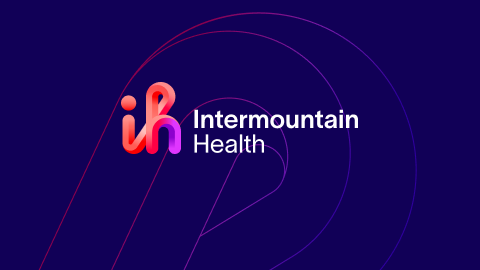Company Directory - Hospitals and Healthcare Facilities
Company Details - Hospitals and Healthcare Facilities
Hospitals and Healthcare Facilities
A sector comprising various hospitals and healthcare facilities that purchase food and beverage supplies for patient services and cafeteria operations. These institutions provide health care services, patient treatment, and support community wellness through diverse medical services and facilities.
CCI Score
CCI Score: Hospitals and Healthcare Facilities
-1.45
Latest Event
Improved Labor Rights Landscape in Healthcare
The article outlines significant changes in the labor landscape for healthcare employers, marked by increased unionization, improved labor protections, and enhanced enforcement of worker rights, all of which represent a positive shift in labor relations.
Take Action
So what can you do? It's time to make tough choices. Where will you cast your vote?
- Shop Alternatives
SEE ALL - Use Your Voice
OTHER TOOLS - Investigate
- Share the Score
SUPPORT CCI
BYSTANDER
Hospitals and Healthcare Facilities is currently rated as a Bystander.
Latest Events
- SEP182024
The article outlines significant changes in the labor landscape for healthcare employers, marked by increased unionization, improved labor protections, and enhanced enforcement of worker rights, all of which represent a positive shift in labor relations.
+80
Labor Relations and Human Rights Practices
March 19
The article discusses strong labor movements within healthcare, including the rise of unionized doctors and tighter regulatory enforcement on labor practices. These changes promote fair treatment and worker rights, bolstering the sector's ethical practices and diminishing exploitative management behaviors. This is seen as a positive development in resisting authoritarian labor suppression.
- SEP012024
A study examining whether unionization can improve working conditions in hospitals and healthcare facilities, highlighting chronic issues like low wages, inadequate staffing, and unsafe environments that disproportionately affect marginalized workers.
-60
Labor Relations and Human Rights Practices
March 19
The article detailed persistent issues within healthcare facilities such as low wages, inadequate staffing, and unsafe working conditions, especially impacting historically disadvantaged groups. The investigation into unionization as a remedy indirectly criticizes current labor practices in the sector, suggesting that these institutions have neglected the welfare of their employees, thereby contributing to a broader system of oppression and complicity in authoritarian practices.
Do Labor Unions Improve Working Conditions for Health Care Workers?
- JUL182024
Over 2,000 Sharp HealthCare workers at Sharp Metropolitan Campus have unionized with SEIU-UHW after facing prolonged contract negotiation delays and low wages, underscoring systemic issues in labor relations within the healthcare sector.
-60
Labor Relations and Human Rights Practices
March 19
The article details how over 2,000 healthcare workers at Sharp HealthCare facilities unionized in response to chronic delays in contract negotiations and inadequate wages. This reflects poor labor practices and a disregard for fair worker rights, reinforcing systemic exploitation. In the context of anti-fascist evaluations, such labor rights abuses contribute to authoritarian practices by weakening organized worker resistance and undermining democratic labor standards.
More than 2,000 Healthcare Workers at Sharp Metropolitan Campus Form Union with SEIU-UHW
- JUN302024
This event details HCA Healthcare’s extensive political contributions, lobbying activities, and executive oversight of its political participation from January to June 2024. The report highlights massive outlays across political organizations and trade associations, raising concerns about corporate influence in policymaking.
-40
Political Contributions and Lobbying Efforts
March 19
HCA Healthcare has demonstrated significant engagement in political contributions and lobbying efforts. The company has allocated substantial funds to numerous political committees, PACs, and trade associations. Such extensive financial involvement in the political process raises concerns about undue corporate influence and potential facilitation of authoritarian policy outcomes.
-20
Executive Political Engagement
March 19
HCA Healthcare centralizes political engagement through its executive leadership, notably the Senior Vice President of Government Relations. While the company maintains compliance protocols and board oversight, this executive-driven approach to political spending illustrates a top-down influence on policy that may undermine democratic accountability.
- MAR242024
The Missouri Hospital Association is running a HEALTHPAC political action campaign to raise funds for supporting candidates that advocate for hospital and healthcare interests. The campaign, which encourages participation from hospital executives, managers, and staff, raises concerns about the influence of corporate political contributions on democratic processes.
-15
Public and Political Behavior
March 19
The HEALTHPAC campaign demonstrates active political involvement by the Missouri Hospital Association through the mobilization of contributions for political candidates. While the campaign is presented as nonpartisan and supportive across party lines, it nevertheless mobilizes hospital executives and staff to engage in political funding, raising concerns about corporate influence and potential complicity in undermining democratic accountability. From a left-leaning perspective, such political contributions are seen as a tool that can subtly shift policy in favor of corporate interests, even if not explicitly authoritarian.
- FEB142024
Hospitals and healthcare facilities are increasingly deploying AI-enabled video surveillance systems to enhance security, efficiency, and operational oversight. While these systems are designed to improve patient care and safety, the normalization of surveillance technology in this context raises concerns about potential privacy infringements and the slippery slope toward authoritarian control.
-10
Provision of Repressive Technologies
March 19
The article describes how healthcare facilities are deploying advanced, AI-powered surveillance systems to monitor patients, staff, and visitors. From an anti-fascist perspective, the adoption of such technology—although aimed at improving security and efficiency—can contribute to the normalization of pervasive surveillance tactics. This raises concerns about potential misuse or repurposing of these systems towards more authoritarian control mechanisms over individuals, even if the primary goal remains operational safety.
- JAN052024
Hospitals and healthcare facilities have witnessed a surge in unionization efforts, with multiple successful campaigns among medical staff. These developments signal a positive step towards improved labor relations and stronger protections for healthcare workers, countering exploitative practices and indirectly resisting authoritarian influences in corporate management.
+80
Labor Relations and Human Rights Practices
March 19
The article highlights successful unionization efforts among healthcare workers at hospitals, indicating strong support for labor rights and fair working conditions. This positive development is a counteraction against exploitative practices and signals the company’s environment that fosters worker empowerment. Enhancing labor relations like these is crucial in resisting authoritarian influences that seek to diminish worker voice and rights.
Code Red for Hospitals: Unions Find Receptive Audience in Weary Health Care Workers
- JAN012024
Amid a trend of increasing consolidation within corporate healthcare systems, physicians are unionizing in response to diminishing autonomy and deteriorating labor conditions. Critics argue that such consolidation undermines fair labor practices, pressuring doctors to organize in order to safeguard their rights and improve working conditions.
-70
Labor Relations and Human Rights Practices
March 19
The event reflects a serious issue in labor relations where the consolidation of healthcare services into large corporate systems is negatively impacting doctors' working conditions and autonomy. The forced move from independent practice to employment under corporate protocols has created an environment where workers' rights are compromised, prompting unionization. This is indicative of broader business practices that tend to undermine labor rights, producing adverse effects resembling authoritarian corporate management.
Doctors unionize as healthcare services are consolidated into corporate systems
- JAN012024
Hospitals/Nursing Homes PACs donated a total of $5,463,824 to federal candidates during the 2024 cycle, raising concerns over the potential influence of these contributions on political outcomes that could favor authoritarian policies.
-20
Political Contributions and Lobbying Efforts
March 19
The data reveals that hospitals and nursing homes, through their PACs, contributed over $5.46 million to federal candidates in 2024. Such significant political contributions raise concerns from an anti-fascist perspective, as these funds could indirectly support candidates whose policies may undermine democratic norms and favor authoritarian practices.
Hospitals/Nursing Homes PACs contributions to candidates, 2023-2024
- OCT102023
The surge in unionization and work stoppages among healthcare workers—the most notable being the Kaiser Permanente strike—underscores long‐standing issues in hospital employee relations. This unrest points to deficiencies in staffing and management practices that have left workers feeling undervalued and unsupported, raising concerns about the broader implications for patient care and community trust.
-40
Labor Relations and Human Rights Practices
March 19
The article documents a significant uptick in union activities and labor unrest in the healthcare sector, reflecting deep-seated issues in employee treatment. Hospitals, as represented by this sector, appear to be failing to adequately address staffing challenges and worker concerns. This shortfall in labor relations and human rights practices contributes negatively to the overall ethical responsibility of these institutions and aligns with broader patterns of corporate indifference that can facilitate authoritarian management practices.
Healthcare labor union activity gains steam: The consequences for hospitals and health systems
- MAY182023
In response to harsh working conditions during the pandemic, a notable increase in unionization efforts is underway among healthcare workers at several hospitals, reflecting growing demands for improved labor rights and human rights practices.
+80
Labor Relations and Human Rights Practices
March 19
The article details a significant rise in unionization among healthcare workers, driven by long-standing issues of understaffing, forced overtime, and inadequate working conditions exacerbated by the pandemic. This mobilization highlights internal pressures on healthcare institutions to reform labor practices and respect workers’ rights, aligning with progressive efforts to combat exploitative management. Such worker-led actions are viewed positively as they challenge oppressive labor dynamics and support ethical workplace standards.
More healthcare workers are looking to unionize post-pandemic
- DEC272022
A 2022 study on US healthcare workers reveals that unionized employees receive higher wages, better benefits, and improved working conditions. This evidence suggests that hospitals and healthcare facilities that permit or support unionization demonstrate higher standards in labor relations and human rights practices.
+80
Labor Relations and Human Rights Practices
March 19
The study highlights that unionized healthcare workers experience tangible benefits including higher pay and better noncash benefits. This suggests that hospitals and healthcare facilities that are receptive to unionization practices tend to uphold stronger labor rights and ethical workplace standards, which aligns positively against oppressive labor practices. By supporting or allowing union activity, these institutions are indirectly countering worker exploitation and authoritarian economic practices.
Trends in Labor Unionization Among US Health Care Workers, 2009-2021
- SEP012020
Hospitals and Healthcare Facilities, through their political action committee HEALTHPAC, are actively supporting state candidates that align with hospital interests. This concentrated political lobbying raises concerns about the influence of corporate money in shaping a regulatory environment that may favor industry over public accountability, potentially contributing to regulatory capture.
-30
Political Contributions and Lobbying Efforts
March 19
The sector's PAC, HEALTHPAC, is used to back candidates who are seen as favorable to hospital interests, effectively using political contributions to ensure a legislative environment that benefits large institutions. From a left-leaning perspective, such targeted political influence risks undermining democratic processes and contributing to a climate of regulatory capture, where corporate interests supplant the public good.
Alternatives

Salt Lake City, USA
45.39

London, England
29.54

Lubbock, United States
9.58

Los Angeles, United States
-29.24

Corporation
0.00
Corporation
-26.78

Corporation
-31.56

Chennai, India
68.98

Gaza, Palestine
64.75

London, United Kingdom
27.41
Industries
- 622110
- General Medical and Surgical Hospitals
- 622210
- Psychiatric and Substance Abuse Hospitals
- 622310
- Specialty (except Psychiatric and Substance Abuse) Hospitals
- 623110
- Nursing Care Facilities (Skilled Nursing Facilities)
- 623311
- Continuing Care Retirement Communities
- 623312
- Assisted Living Facilities for the Elderly